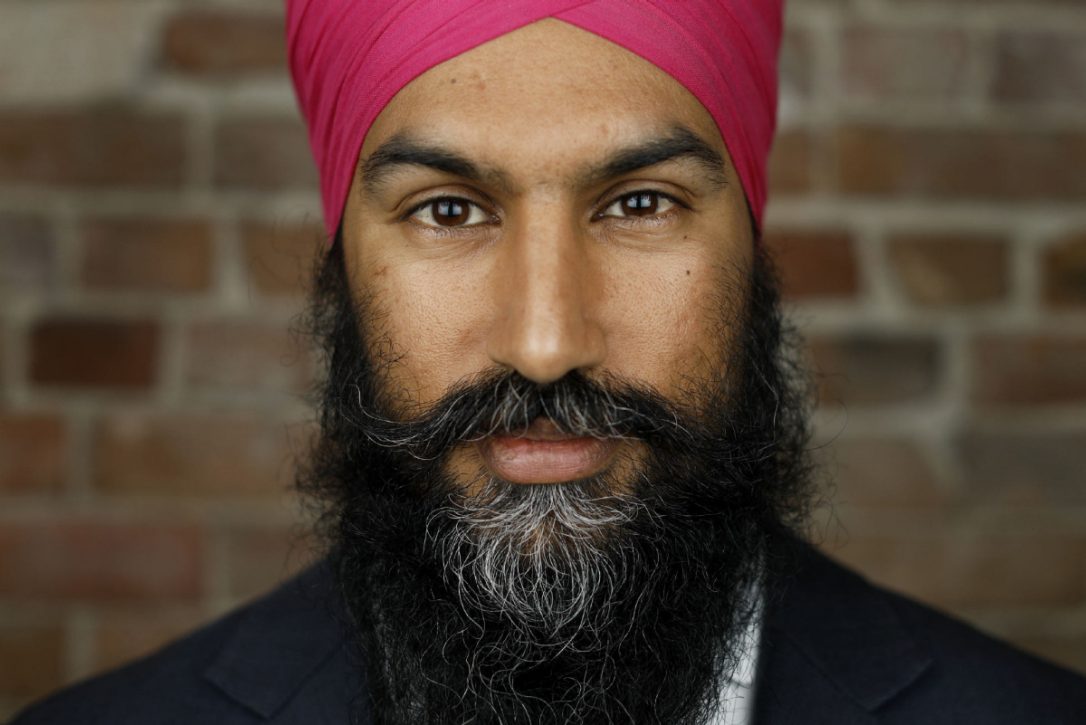"Concern trolling" is the hot new term for the practice of feigning worry about a person or cause you don't actually care much about. At best, it's a form of "virtue signaling" (to use another trendy expression) that demonstrates one's endless capacity for compassion; at worst, it's cynical sabotage — the giving of intentionally bad advice to enemies.
In Canadian politics over the last few months, concern trolling has manifest mostly in the form of not-terribly-conservative pundits and commentators writing pained editorials about supposedly depressing trends in the Canadian Conservative Party, or the Canadian right more generally.
It began immediately after the last federal election, when all the respectable media voices asserted that Prime Minister Harper had been unseated as punishment for taking too hard a line against Islam's growing presence in Canadian society. It was sad, really, they said, that Harper had cost himself the election and let lose the demons of Islamophobia with his suggestion that some "cultural practices" could be "barbaric." Little hard evidence was produced to support this popular thesis, but the purpose was less legitimate political analysis than route, public affirmation of elite received wisdom — in this case, multiculturalism = good.
Then along came Kellie Leitch. For entire seasons, Canadians were given thunderous warnings about the danger of this woman and her notions of "testing" immigrants for "values" — a proposal that would obviously lower our intake of immigrants broadly and Muslim immigration particularly. Making her Tory leader would be a path to political suicide for the party, insisted people who never had any intention of voting for it, but plenty of interest in shutting down critical conversations about immigration.
And now, our journalistic pals are hot off several weeks of publicly dancing on the grave of The Rebel, the decaying populist-conservative website that originally arose to take a hardline against political correctness and radical Islam, only to become bogged down in the increasingly white supremacist-friendly "alt-right" subculture. Every mainstream conservative person in this country with some passing involvement with the website has now been thoroughly named and shamed, as thick, straight lines are drawn from Rebel rhetoric to the killing in Charlottesville (or, in the case of the National Post, the Quebec City mosque massacre).
There's nothing wrong, in theory, with wanting to police the boundaries of Canada's political discourse, but when enforcement only flows in one direction — people on the center-left scolding conservatives about the inherit dangers of right wing ideology — the criticism is not useful, since it's so clearly motivated by partisanship and ideology.
Wrack your brain, for instance, for the last time you read one of our nation's leading progressive pundits express worry that the NDP, as it settles on a new leader, may be drifting too far to the radical left.
It's not like there's no precedent for concern. Successive leftist administrations in Greece borrowed and spoiled that country into a state of ruin, with a public that was promised everything now having little beyond record unemployment and poverty. The Castro brothers spent nearly 60 years using Marxist theory to turn Cuba into the poorest, most repressive state in our hemisphere. That recipe was religiously copied in Venezuela, another once well-off country that needed only a decade of doctrinaire socialism to transform itself into a nation of dictatorship and bread — excuse me, toilet paper — lines. Closer to home, the radical "Antifa" movement has taken the hysteric rhetoric of the internet left, in which anyone even slightly more conservative than themselves is a "literal Nazi," and turned it into an actionable agenda of crusading political violence.
The logic of these regimes, and often the regimes themselves, have been enthusiastically praised by many NDP leadership candidates, particularly Jagmeet Singh, who claimed Fidel Castro "uplifted the lives of millions" and Niki Ashton, who's had similarly warm things to say about the delusional, far-left ruling party of Greece ("an inspiration"), and is basically running as a sort of neo-Marxist, with the blunt and foreboding "you privatize it, we nationalize it" as one of her slogans.
This is frightening stuff, but it's rarely called out on the editorial pages of the nation. Some might say it's a byproduct of the fact that no one takes the third-place NDP very seriously, but a more honest conclusion would be that those in Canada's opinion-generating class are simply bothered less by untethered far-left politics than those of the far-right. The notion of a Canada with lower levels of immigration, or greater hostility to Islam, is deemed an objectively worse fate than a Canada with a government attempting to implement orthodox socialist economics.
Events, to date, have mostly played out in favour of the right's critics. Harper's gone, Leitch lost, The Rebel's got one foot in the grave. With Canadian conservatives now increasingly confused, divided, and demoralized, there's a real opportunity for crazed far-left voices to fill the country's newfound vacuum of populist anger and Trudeau dissent.
Whatever damage they wind up wreaking, we certainly weren't warned.
Written by J.J. McCullough






